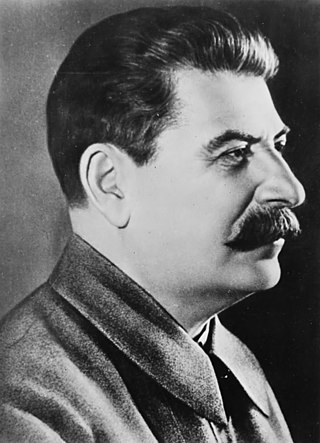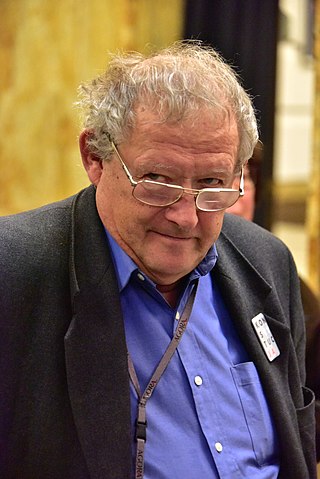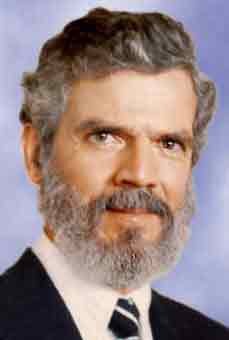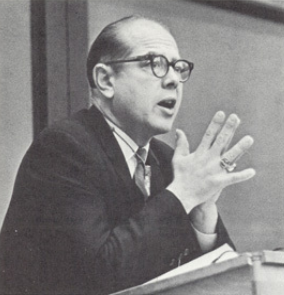
Leninism is a political ideology developed by Russian Marxist revolutionary Vladimir Lenin that proposes the establishment of the dictatorship of the proletariat led by a revolutionary vanguard party as the political prelude to the establishment of communism. Lenin's ideological contributions to the Marxist ideology relate to his theories on the party, imperialism, the state, and revolution. The function of the Leninist vanguard party is to provide the working classes with the political consciousness and revolutionary leadership necessary to depose capitalism.
Marxism–Leninism is a communist ideology that became the largest faction of the communist movement in the world in the years following the October Revolution. It was the predominant ideology of most socialist governments throughout the 20th century. Developed in Russia by the Bolsheviks, it was the state ideology of the Soviet Union, Soviet satellite states in the Eastern Bloc, and various countries in the Non-Aligned Movement and Third World during the Cold War, as well as the Communist International after Bolshevisation.

Stalinism is the means of governing and Marxist–Leninist policies implemented in the Soviet Union (USSR) from 1927 to 1953 by Joseph Stalin. It included the creation of a one-party totalitarian police state, rapid industrialization, the theory of socialism in one country, collectivization of agriculture, intensification of class conflict, a cult of personality, and subordination of the interests of foreign communist parties to those of the Communist Party of the Soviet Union, which Stalinism deemed the leading vanguard party of communist revolution at the time. After Stalin's death and the Khrushchev Thaw, a period of de-Stalinization began in the 1950s and 1960s, which caused the influence of Stalin's ideology to begin to wane in the USSR.
Totalitarianism is a form of government and a political system that prohibits all opposition parties, outlaws individual and group opposition to the state and its claims, and exercises an extremely high if not complete degree of control and regulation over public and private life. It is regarded as the most extreme and complete form of authoritarianism. In totalitarian states, political power is often held by autocrats, such as dictators or absolute monarchs, who employ all-encompassing campaigns in which propaganda is broadcast by state-controlled mass media in order to control the citizenry.

Adam Michnik is a Polish historian, essayist, former dissident, public intellectual, as well as co-founder and editor-in-chief of the Polish newspaper, Gazeta Wyborcza.

Rudolph Joseph Rummel was an American political scientist and professor at the Indiana University, Yale University, and University of Hawaiʻi at Mānoa. He spent his career studying data on collective violence and war with a view toward helping their resolution or elimination. Contrasting genocide, Rummel coined the term democide for murder by government, such as the genocide of indigenous peoples and colonialism, Nazi Germany, the Stalinist purges, Mao Zedong's Cultural Revolution, and other authoritarian, totalitarian, or undemocratic regimes, coming to the conclusion that democratic regimes result in the least democides.

The Black Book of Communism: Crimes, Terror, Repression is a 1997 book by Stéphane Courtois, Andrzej Paczkowski, Nicolas Werth, Jean-Louis Margolin, and several other European academics documenting a history of political repression by communist states, including genocides, extrajudicial executions, deportations, and deaths in labor camps and artificially created famines. The book was originally published in France as Le Livre noir du communisme: Crimes, terreur, répression by Éditions Robert Laffont. In the United States, it was published by Harvard University Press, with a foreword by Martin Malia. The German edition, published by Piper Verlag, includes a chapter written by Joachim Gauck. The introduction was written by Courtois. Historian François Furet was originally slated to write the introduction, but he died before being able to do so.
Soviet and communist studies, or Soviet studies is the field of historical studies of the Soviet Union and other Communist states as well as historical studies of the Communist parties that existed or still exist in some form in many countries, both inside and outside the former Eastern Bloc, such as the Communist Party USA. Aspects of its historiography have attracted debates between historians on topics including totalitarianism and Cold War espionage.
Ian Steven Lustick is an American political scientist and specialist on the modern history and politics of the Middle East. He currently holds the Bess W. Heyman Chair in the department of Political Sciences at the University of Pennsylvania.
Neo-Stalinism is the promotion of positive views of Joseph Stalin's role in history, the partial re-establishing of Stalin's policies on certain or all issues, and nostalgia for the Stalinist period. Neo-Stalinism overlaps significantly with neo-Sovietism and Soviet nostalgia. Various definitions of the term have been given over the years.

Abbas Malekzadeh Milani is an Iranian-American historian, educator, and author. Milani is a visiting professor of political science, and the Hamid and Christina Moghadam Director of the Iranian Studies program at Stanford University. He is also a research fellow and co-director of the Iran Democracy Project at Stanford University's Hoover Institution. In Milani's book, Lost Wisdom: Rethinking Modernity in Iran, he has found evidence that Persian modernism dates back to more than 1,000 years ago.
Vladimir Tismăneanu is a Romanian American political scientist, political analyst, sociologist, and professor at the University of Maryland, College Park. A specialist in political systems and comparative politics, he is director of the University of Maryland's Center for the Study of Post-Communist Societies, having served as chairman of the editorial committee (2004–2008) and editor (1998–2004) of the East European Politics and Societies academic review. Over the years, Tismăneanu has been a contributor to several periodicals, including Studia Politica, Journal of Democracy, Sfera Politicii, Revista 22, Evenimentul Zilei, Idei în Dialog and Cotidianul. He has also worked with the international radio stations Radio Free Europe and Deutsche Welle, and authored programs for the Romanian Television Company. As of 2009, he is Academic Council Chairman of the Institute for People's Studies, a think tank of the Romanian Democratic Liberal Party. Between February 2010 and May 2012, he was also President of the Scientific Council of the Institute for the Investigation of Communist Crimes in Romania.
America at the Crossroads: Democracy, Power, and the Neoconservative Legacy is a 2006 book written by Francis Fukuyama.
Communism is a left-wing to far-left sociopolitical, philosophical, and economic ideology within the socialist movement, whose goal is the creation of a communist society, a socioeconomic order centered around common ownership of the means of production, distribution, and exchange that allocates products to everyone in the society based on need. A communist society would entail the absence of private property and social classes, and ultimately money and the state.

Tankie is a pejorative label generally applied to communists who express support for one-party communist regimes that are associated with Marxism–Leninism, whether contemporary or historical. It is commonly used by anti-authoritarian leftists, including anarchists, libertarian socialists, left communists, democratic socialists, and reformists to criticise Leninism, although the term has seen increasing use by liberals and right‐wing factions as well.

Mass killings under communist regimes occurred through a variety of means during the 20th century, including executions, famine, deaths through forced labour, deportation, starvation, and imprisonment. Some of these events have been classified as genocides or crimes against humanity. Other terms have been used to describe these events, including classicide, democide, red holocaust, and politicide. The mass killings have been studied by authors and academics and several of them have postulated the potential causes of these killings along with the factors which were associated with them. Some authors have tabulated a total death toll, consisting of all of the excess deaths which cumulatively occurred under the rule of communist states, but these death toll estimates have been criticized. Most frequently, the states and events which are studied and included in death toll estimates are the Holodomor and the Great Purge in the Soviet Union, the Great Chinese Famine and the Cultural Revolution in the People's Republic of China, and the Cambodian genocide in Democratic Kampuchea.

Robert Anthony Scalapino was an American political scientist particularly involved in East Asian studies. He was one of the founders and first chairman of the National Committee on United States – China Relations. Together with his co-author Chong-Sik Lee, he won the 1974 Woodrow Wilson Foundation Award for the best book on government, politics, or international affairs as awarded by the American Political Science Association. Scalapino's daughters include the artist Diane Sophia and poet Leslie Scalapino (1944–2010).

Some historians and other authors have carried out comparisons of Nazism and Stalinism. They have considered the similarities and differences between the two ideologies and political systems, the relationship between the two regimes, and why both came to prominence simultaneously. During the 20th century, the comparison of Nazism and Stalinism was made on totalitarianism, ideology, and personality cult. Both regimes were seen in contrast to the liberal democratic Western world, emphasizing the similarities between the two.
People's democracy is a theoretical concept within Marxism–Leninism and a form of government which developed after World War II and allows in theory for a multi-class and multi-party democracy on the pathway to socialism. People's democracy was established in a number of European and Asian countries as a result of the people's democratic revolutions of the 1940s.
The anti-Stalinist left is a term that refers to various kinds of Marxist political movements that oppose Joseph Stalin, Stalinism, Neo-Stalinism and the system of governance that Stalin implemented as leader of the Soviet Union between 1924 and 1953. This term also refers to the high ranking political figures and governmental programs that opposed Joseph Stalin and his form of communism, such as Leon Trotsky and other traditional Marxists within the Left Opposition.









